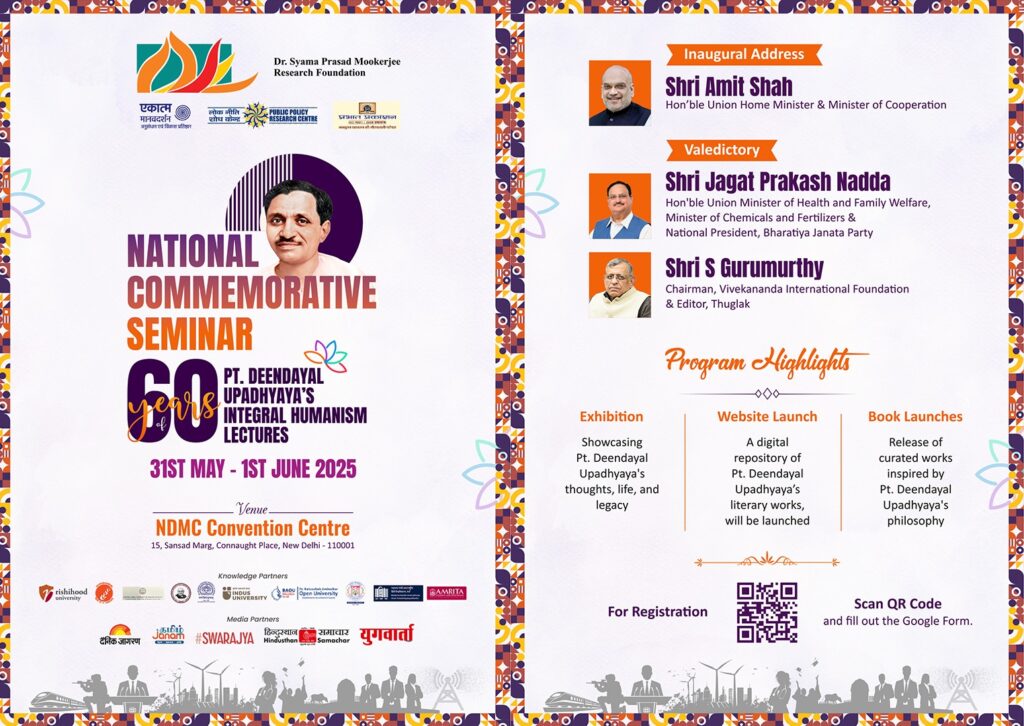The just-released BJP manifesto is a vision document which pledges to lay a sturdy foundation for India by the 75th year of its Independence in 2022. Solid on national security, committed to generating opportunities, and firm on its ideological commitment to strengthen and safeguard India’s unity and her cultural roots, the BJP’s manifesto comes across as a far-seeing document that articulates a roadmap for also laying the foundation for the hundredth year of India as a free nation.
Contrary to assertions by the Congress president, the exercise for drawing up the BJP manifesto was a democratic and expanded one. BJP general secretary Bhupender Yadav, one of the moving spearheads in the exercise, observed how Prime Minister Modi was very clear that BJP’s manifesto must articulate and express a vision, it could not appear to be a budget document. It had to articulate vision which would be achieved in the next five years.
The BJP manifesto exercise was really crowd-sourced, while the Congress manifesto was drafted by anonymous self-styled experts whose allegiance to the very existence and freedom of India seems to be doubtful. Since it was made within the confines of an office, the Congress manifesto appears to be delinked with the reality of India, comes across as a document for the Balkanisation of India. Talks of reducing the presence of the army in Jammu & Kashmir, talks of repealing AFSPA and of repealing sedition laws, all run counter to India’s national security imperatives and, if implemented, will only retard her march towards strategic self-reliance.
The BJP’s vision document, on the other hand, has something about the expansion of livelihood opportunities in every single page. It has brought to the fore the Indian narrative of livelihood, which centres on opportunities, it has pledged to further re-ignite and give scope to the entrepreneurial spirit of Indian people. PM Modi’s vision of livelihood and opportunities has forced a new debate, a new narrative has clearly emerged. Unlike Congress which is a dynasty conglomerate, BJP, like its predecessor the Jana Sangh, is the creation of an ideology and has grown through ideological movement. The Vision Document’s position on national security – Nation First, its reiteration of combating infiltration, its zero-tolerance of terrorism, self-reliance in defence sector, its position on the abrogation of Article 370 and 35A, are all part of that ideological churning. These are issues that had defined the Jana Sangh and continued to define the BJP, and can therefore never be marginal to any vision for the country that we articulate.
The reiteration to explore all possibilities within the framework of the Constitution and make “all necessary efforts to facilitate expeditious construction of the Ram Temple in Ayodhya” is one of the ideological anchors of the BJP as is the commitment to work towards a “uniform civil code.” The BJP’s Vision Document thus clearly reiterates that the narrative of nationalism, a secure and well-protected nation, is not incompatible with the narrative of development.
In a recent interview to a news channel, PM Modi best described this convergence of nationalism and development – he eloquently argued how saying “Bharat Mata Ki Jai” in every sector of our national development means that one wants to work to make that sector best. The crux of his position is that the galvanising cry of “Bharat Mata Ki Jai” springs forth from every heart which wants to do good to the nation, which yearns for our collective good and progress, which aspires to work for an all-encompassing and comprehensive growth of the country. The BJP’s manifesto has clearly articulated that convergence, while the Congress’s is a confused statement of vague ideas that aims to weaken India.
(The views expressed are the author's own and do not necessarily reflect the position of the organisation)

